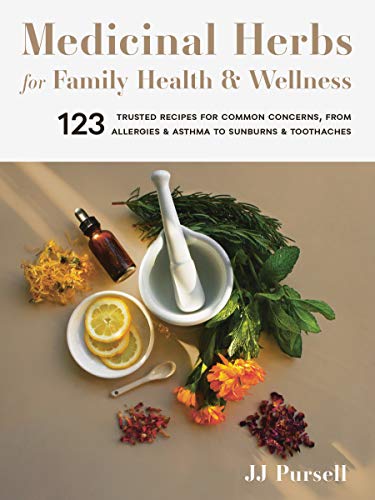Dealing with toothaches can be a painful experience, especially when they are caused by sinus pressure. In our step-by-step guide, we aim to provide you with effective techniques to ease the discomfort and find relief. Whether you’re suffering from a mild toothache or a more severe one, we have you covered with practical advice to help you alleviate the pain and address the root cause of your sinus-related toothache.
Relief for Toothache Troubles
Identify the cause
To identify the cause of your toothache, it is crucial to first determine if it is being caused by sinus pressure. Look out for symptoms such as congestion, facial pain, and pressure around the sinuses. For example, if you are experiencing a stuffy nose, pain in your cheeks or forehead, and a feeling of pressure in your sinuses, it is possible that your toothache is a result of sinus issues.
To determine if sinus pressure is the cause, you can try a simple test. Gently press on your cheekbones or forehead, and if the pressure in your teeth increases or you experience pain, it is a sign that sinus pressure may be the culprit. Additionally, if your toothache is accompanied by other symptoms such as a runny nose, sneezing, or a sore throat, it further suggests that sinus pressure is the underlying cause.
By recognizing these symptoms and conducting a simple self-assessment, you can gain a better understanding of whether sinus pressure is contributing to your toothache. Remember, if you are unsure or your symptoms worsen, it is always advisable to consult a healthcare professional for a proper diagnosis and treatment.
Try home remedies
Apply a warm compress to the affected area to alleviate the toothache caused by sinus pressure. Simply soak a clean cloth in warm water, wring out the excess, and gently place it against your cheek, near the painful tooth. Leave the warm compress on for about 10 to 15 minutes, and repeat this several times a day as needed. The warmth helps to improve blood circulation and reduce inflammation, providing temporary relief from the toothache.
Another home remedy to try is rinsing your sinuses with saline solution. To do this, prepare a saline solution by dissolving half a teaspoon of salt in a cup of warm water. Tilt your head back, and using a neti pot or a squeeze bottle, gently pour the saline solution into one nostril while keeping your mouth open. Allow the solution to flow through your nasal passages and out the other nostril. Repeat this process a few times a day to help reduce sinus pressure and alleviate the associated toothache.
Additionally, you can consider using over-the-counter pain relievers to help manage the toothache caused by sinus pressure. Nonsteroidal anti-inflammatory drugs (NSAIDs), such as ibuprofen or naproxen, can help reduce pain and inflammation. Follow the instructions on the packaging for the appropriate dosage and frequency. However, it’s always a good idea to consult with a healthcare professional before taking any medication.
Remember, these home remedies provide temporary relief, but it’s important to address the underlying cause of the sinus pressure to fully alleviate the toothache. If the pain persists or worsens, we recommend seeking dental or medical advice for further evaluation and treatment.
Maintain good oral hygiene
To prevent and manage toothaches caused by sinus pressure, it is crucial to maintain proper oral hygiene. Firstly, brush your teeth thoroughly twice a day using a soft-bristled toothbrush and fluoride toothpaste. Remember to gently brush along the gumline and reach all areas of your mouth, including the back teeth. Afterwards, floss daily to remove plaque and food particles between your teeth and along the gumline. This will help prevent the buildup of bacteria that can contribute to toothaches.
In addition to brushing and flossing, it is important to rinse your mouth with an antiseptic mouthwash. Choose a mouthwash that contains antibacterial properties to help eliminate harmful bacteria and maintain a clean oral environment. Pour a small amount of the mouthwash into a cup, swish it around your mouth for about 30 seconds, and then spit it out. Be sure to follow the instructions on the mouthwash bottle for the recommended frequency of use.
By following these simple steps, you can improve your oral hygiene and reduce the likelihood of toothaches caused by sinus pressure. Remember to be consistent and make these practices a part of your daily routine for optimal oral health.
Use a humidifier
To add moisture to the air and find relief from sinus pressure and toothaches, let’s consider using a humidifier. Start by placing a humidifier in your bedroom or any other area where you spend a significant amount of time. Make sure to choose a humidifier that suits your needs, whether it’s a cool mist or warm mist humidifier.
Next, fill the water tank of the humidifier with clean, distilled water. Avoid using tap water as it may contain impurities that can be released into the air. Follow the manufacturer’s instructions for the specific model you have chosen, as each humidifier may have slightly different guidelines.
Once the water tank is filled, securely close it and place the humidifier on a flat, stable surface. Ensure that it is positioned at a safe distance from walls and other objects to allow proper air circulation.
Now, turn on the humidifier and adjust the settings according to your preference. Remember to start with a lower humidity level and gradually increase it if needed. It is important to maintain the humidity at a comfortable level, usually between 30% and 50%, to avoid excessive moisture in the air.
Regularly clean and maintain your humidifier to prevent the growth of bacteria and mold. This typically involves emptying and cleaning the water tank daily, as well as regularly replacing the filter if your humidifier has one. Refer to the manufacturer’s instructions for specific cleaning and maintenance guidelines.
By using a humidifier in your living space, you can add much-needed moisture to the air, providing relief from sinus pressure and reducing toothaches. Remember to consult with a healthcare professional if you have any specific concerns or medical conditions related to sinus or dental issues.
Stay hydrated
Drinking plenty of water is essential for staying hydrated and maintaining overall health. But did you know that it can also help alleviate sinus pressure and thin mucus? When we drink enough water, it helps to flush out toxins from our body and keeps our nasal passages moist, reducing the discomfort caused by sinus congestion.
To experience the benefits of hydration on sinus pressure, we should aim to drink at least 8 glasses of water per day. Here are a few easy-to-follow tips to help us stay hydrated and relieve sinus pressure:
- Keep a water bottle handy: Carry a refillable water bottle with us throughout the day, so we have a constant reminder to drink water regularly.
- Set a schedule: Create a drinking schedule by setting reminders on our phone or using an app. This will help us establish a routine and ensure we are consistently hydrating ourselves.
- Flavor it up: If plain water seems boring, try infusing it with fruits like lemon, cucumber, or berries for a refreshing twist. This can make drinking water more enjoyable and increase our water intake.
- Stay ahead of thirst: Don’t wait until we feel thirsty to drink water. Thirst is our body’s way of telling us we are already dehydrated. Instead, sip water throughout the day to stay ahead of thirst and maintain hydration levels.
- Monitor urine color: Keep an eye on the color of our urine. If it’s pale yellow or clear, it’s a good indication that we are adequately hydrated. Dark yellow urine may be a sign that we need to drink more water.
Remember, staying hydrated is crucial not only for sinus relief but also for our overall well-being. So let’s make a conscious effort to drink enough water each day and reap the benefits of a properly hydrated body.
Avoid triggers
To minimize sinus pressure and toothaches, it is important to steer clear of certain triggers that can exacerbate these discomforts. Substances like tobacco smoke, strong perfumes, and allergens have the potential to worsen your symptoms. We recommend taking proactive steps to avoid these triggers as much as possible.
Firstly, make a conscious effort to stay away from tobacco smoke. Avoid areas where smoking is allowed and kindly ask individuals not to smoke in your presence. Additionally, refrain from smoking yourself, as this can further irritate your sinuses and teeth.
Next, be mindful of strong perfumes or fragrances. Opt for fragrance-free or lightly scented products whenever possible. Avoid directly inhaling or applying strong perfumes, as they can potentially trigger sinus pressure and toothaches.
Lastly, take measures to minimize exposure to allergens. Keep your living space clean and dust-free, using a damp cloth to wipe surfaces regularly. If you have known allergies, try to identify the specific triggers and take appropriate precautions to avoid them.
By consciously avoiding these triggers, you can help reduce sinus pressure and toothache discomfort. Remember, prevention is key in managing these symptoms effectively.
Consult a healthcare professional
Consult a healthcare professional if your toothache caused by sinus pressure persists or becomes severe. It is essential to seek medical advice in order to receive a proper diagnosis and obtain appropriate treatment options. A healthcare professional will be able to assess your symptoms and determine if they are indeed related to sinus pressure or if there may be another underlying cause. They may recommend various treatment approaches such as nasal decongestants, pain relievers, or antibiotics if necessary. Remember, reaching out to a healthcare professional is crucial in order to alleviate your discomfort and ensure your dental and sinus health.
Finding Relief for Toothache
In conclusion, we understand how painful toothaches caused by sinus pressure can be. However, there are several ways to ease the discomfort. By identifying the underlying cause, trying home remedies, and maintaining good oral hygiene, we can alleviate the pain to a great extent. Additionally, using a humidifier, staying hydrated, and avoiding triggers can also help reduce sinus pressure and alleviate toothache. If the pain persists or worsens, it is always advisable to consult a healthcare professional for further evaluation and treatment. Remember, we’re here to support you through this discomfort, and we hope these tips will bring you some relief.






















